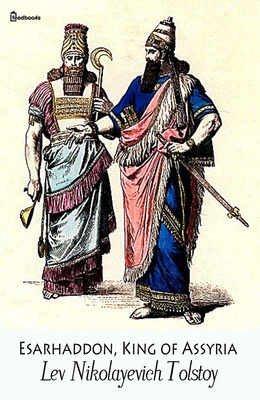For years I have been searching for a Tolstoy short story I vaguely remembered from my childhood where a tyrannical king finds himself transported into the mind of one of his victims. It’s a fantasy wish fulfillment many of us experience when we witness tyrants and bullies oppressing people. Last week, while rummaging through my parents’ library, I found it in a collection of Tolstoy stories that I read as an adolescent.
Here’s the fantasy: what if those who advocate for policies that hurt vulnerable people suddenly found themselves amongst those people? What if those who want to cut food stamps suddenly found themselves living on food stamps? What if those who rail against undocumented immigrants in this country suddenly found themselves running from the immigration authorities? What if those advocating for more Israeli settlement of West Bank land suddenly found themselves to be displaced Palestinians? What if those blind to their white privilege awoke to find themselves people of color?
The Tolstoy story is entitled “Esarhaddon” and, while it does indeed contain the fantasy I remembered, it also has a lot more. You can read an on-line version of it here.
Assyrian king Esarhaddon has captured Laillie, a rival king, and is contemplating modes of execution. Esarhaddon has goaded Laillie into war through a series of unjust demands and then killed thousands of his warriors, sent his women into slavery, and gruesomely tortured his close associates. As the story opens, he is planning to impale Laillie on a stake the next day.
In the middle of the night, however, an old man wakes him up, informs him that he “cannot destroy life,” and says that “this Lailie you speak of is you, yourself.” To Esarhaddon’s demand that he explain, the old man takes him to a fountain and submerges his head. Suddenly Esarhatton discovers that he is Lailie.
As Lailie he relives the days before the battle, experiencing all that the king did to prevent war from happening. He experiences Lailie’s defeat, feels what it is like to be imprisoned in a cage, and watches through Lailie’s eyes as his friends are tortured and killed. Finally he himself is about to be executed:
Finally, two executioners unlocked the cage, strapped his arms behind his back and took him to the blood-soaked place of execution. Lailie saw the sharp, blood-stained stake from which they had just torn the body of a friend of his, and he guessed that they had cleared the stake for his own execution.
They took off his clothes. Lailie was horrified at the sight of the thinness of his once strong, handsome body. The two executioners raised him by his scrawny thighs, lifted him up and were about to impale him on the stake.
“Now death, destruction,” Lailie thought, and forgetting his resolution to preserve a courageous calm until the end, he sobbed and implored mercy. But no one heard him.
“But this can’t be,” he thought. “I’m certainly asleep. It’s a dream.” And he tried to awake. “But I’m not Lailie, I am Esarhaddon,” he thought to himself.
“You are Lailie and you are Esarhaddon,” he heard some voice, and felt the execution begin. He screamed and at that moment pulled his head from the fountain. The old man was standing over him, pouring on his head the rest of the water from the jug.
As a result of his experience, Esarhaddon releases Lailie and he himself resigns his kingship and becomes an itinerant monk, pondering what he has learned and “preaching to the people that life is all one and that in wishing harm on other beings, they only hurt themselves.”
This is a profound message if we could only learn it, one that Christ also taught. When we define ourselves against other people, we are tortured inside and can never achieve genuine peace. The only road to salvation lies is truly opening ourselves to the Other, truly loving our neighbors as ourselves.
Here’s how the old man puts it to Esarhaddon:
“You thought that you alone had life within you, but I tore away the veil of deception, and you saw that in doing evil to others you did it against yourself. One and the same life is in everything, and you are revealed in yourself only a part of this single life. Only in this one part of life that is in you can you improve or worsen, increase or decrease life; and you can improve life in yourself only by demolishing the barriers separating your life from other living beings, by regarding these other beings as you regard yourself, by loving them. It is not in your power to destroy life in other beings. The life that was in these beings you killed only disappeared from your eyes; it was not destroyed. You wish to prolong your own life and shorten the lives of others, but you cannot do this. Life has neither time nor place. A moment of life and thousands of years of life, your own life and the lives of all creatures seen and unseen in this world—it is all one and the same. Life can neither be destroyed nor altered for it alone really exists, all other things are but appearances.”
Having said this, the old man disappeared.
If one is perpetually convulsed by hatred of others, one is punished by being perpetually convulsed. Life is given to us as a precious gift and we waste it in our lashing out.

One Trackback
[…] « A Tolstoy Fable about Radical Empathy ISIS and the Grand Inquisitor » […]